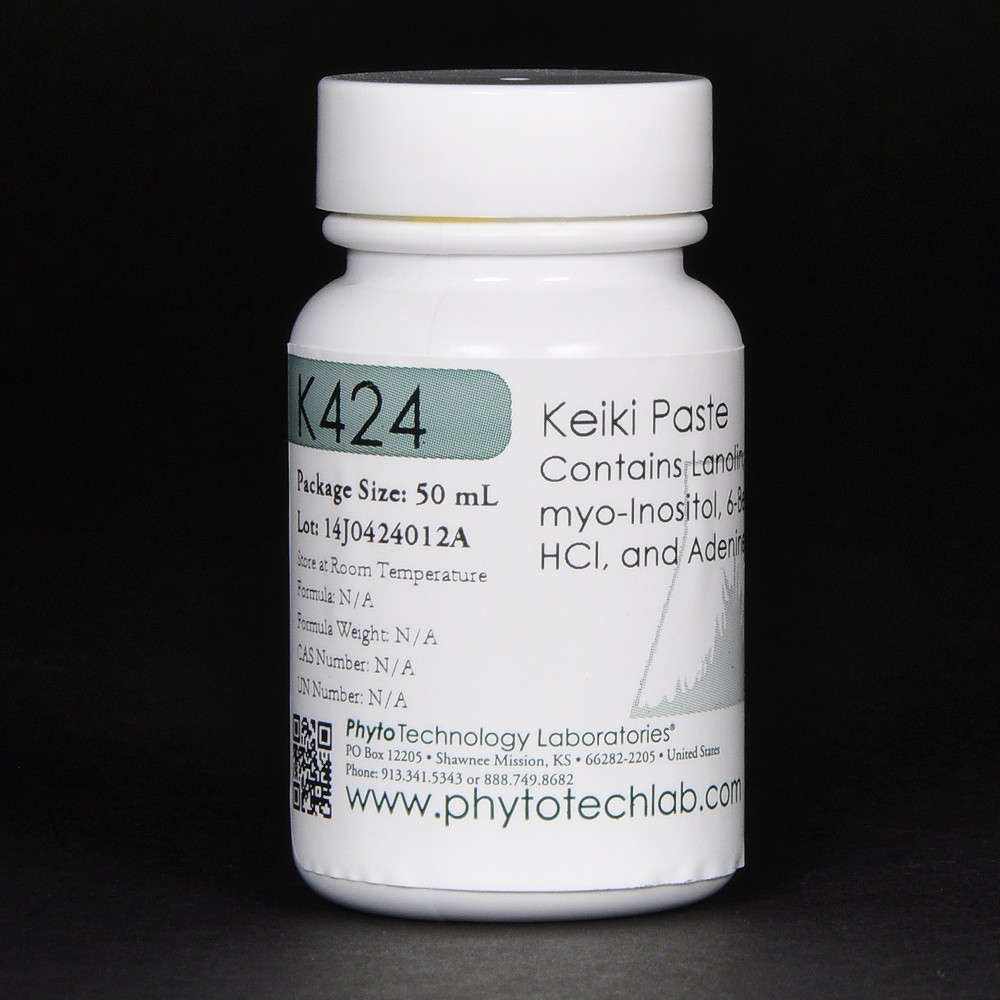Introduction
Description: Keiki Paste; Contains Lanolin, trans-Cinnamic Acid, myo-Inositol, 6-Benzylaminopurine, Thiamine HCl, and Adenine Hemisulfate.
| Physical Form |
Solid |
| Storage Temp. |
Room Temperature |
| UPC / SKU |
K424 |
| Manufactured from |
L451, C283, I703, B800, T390, A545 |
| Storage Temp. |
Room Temperature |
| Tariff Code |
3808.30.0000 |
| Risk Info (R) |
36/37/38 |
| Safety Info (S) |
36 |
No information available
K424 Keiki Paste
| Synonyms: |
Contains Lanolin, trans-Cinnamic Acid, myo-Inositol, 6-Benzylaminopurine, Thiamine HCl, and Adenine Hemisulfate |
| CAS: |
N/A |
| Formula: |
N/A |
| Mol. Weight: |
N/A |
| Properties |
|---|
| Form: |
Solid |
| Appearance: |
Yellow Greasy Paste |
| Application: |
In Vivo Orchid Multiplication |
| Solubility: |
Emulsifies in approximately 3 parts Water |
| Storage Temp: |
Room Temperature |
| Typical Working Concentration: |
As is (Neat) |
| Other Notes: |
The formulation (specific amount of each component) is proprietary |
Application Notes
Keiki paste is spread on the node of an orchid inflorescence to induce growth of a clone of the mother plant.
General procedures for inducing clone are as followed:
1. Carefully remove the bract of the flower stalk with a wooden toothpick. Nodes that are closer to the base have higher chance of inducing a plantlet.
2. Apply a small amount of keiki paste with a toothpick onto the exposed bud. Reapply after two weeks if there is no visible sign of growth.
3. Swelling of the bud will occur after a few days. After several weeks, leaves will appear.
4. Plantlet may be removed from the stalk when a healthy leaves and roots have developed.
Please note: Effectiveness depends upon plant species. Some plant species induced one or more plantlets with keiki paste faster and easier than others.
References




